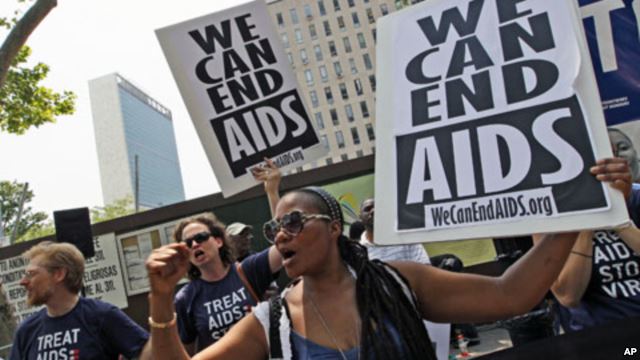NCTE Welcomes National HIV/AIDS Strategy for 2015-2020, Calls for Greater Focus on Trans People, Sex Workers

The National Center for Transgender Equality (NCTE) welcomes the release of the updated National HIV/AIDS Strategy for 2015-2020. We particularly welcome the Strategy’s identification of transgender women as a distinct high-risk population, “noting the particularly high burden of HIV among Black transgender women.” We agree, as the Strategy states, that the nation “must remain vigilant in increasing knowledge and appropriate support and interventions for this population.” The Strategy appropriately recognizes that social stigma, trauma, and lack of cultural competence in health care are particularly acute for trans people, and that HIV efforts should promote trans leadership and tailored models to deliver care to trans people.
We are disappointed that the Strategy does not include concrete indicators for addressing HIV among trans people, instead promising to develop those indicators by 2020. More data on trans people and HIV is certainly needed—a problem that itself has not seen adequate action from the federal government. We strongly urge the Administration and all levels of government to prioritize setting and achieving concrete goals to prevent and treat HIV among trans people, with an emphasis on trans women and people of color.
We welcome the Strategy’s recognition that stigma and discrimination related to sex work and drug use are serious barriers to HIV prevention, testing, and care and must be eliminated. We are disappointed, however, that the Strategy fails to identify sex workers a key high-risk population or set measurable goals for addressing HIV among sex workers. The Strategy instead promises simply to develop indicators on combatting stigma in general over the next five years. We strongly urge the Administration to take combating HIV among people involved in commercial sex work and other forms of sexual exchange seriously, and to collaborate with sex workers and their advocates to identify real solutions. We welcome stronger recognition in the updated Strategy that many state and even some federal criminal laws today are still based on inaccurate assumptions concerning HIV transmission and prevention, and should be changed.
We are disappointed that the Strategy does not set specific goals or indicators regarding prevention or treatment of HIV in prisons and jails. Over 90% of people incarcerated today will released in the future, so HIV behind bars affects all communities on the outside, and Black and Latino communities disproportionately. So long as the US continues to incarcerate millions of its residents, HIV prevention and care—including access to condoms, which are currently banned by most correctional systems, including federal prisons, and protecting the confidentiality of HIV status—must be prioritized.
We call on the Administration and all levels of government to use and build on the updated National Strategy to strengthen efforts to expand and improve HIV and AIDS treatment and prevent infections, stigma, and discrimination for all populations. We will continue to press the government to listen to and work with transgender people, sex workers, incarcerated people, and other heavily stigmatized groups and their advocates to forge effective responses to the epidemic.

